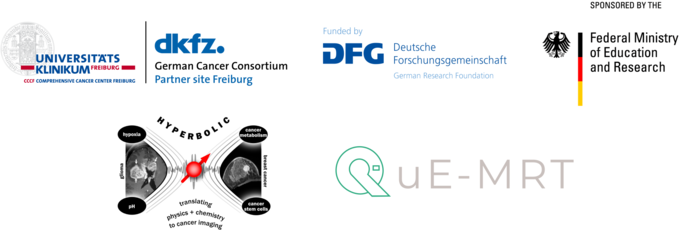Nuclear Hyperpolarization
For Noninvasive In Vivo Metabolic and Molecular MRI
Welcome to our group!
We specialize in unlocking the full potential of Magnetic Resonance Imaging (MRI) for medical diagnostics and beyond. Our goal is to develop new MRI sequences, hardware, and hyperpolarization methods that allow us to visualize metabolism, physiology, and function of living organisms.
MRI has become a vital tool in medical diagnostics, but its sensitivity is limited, and only a tiny fraction of the signal that is theoretically available is used. Hyperpolarization is a technique that enhances the inherently low nuclear spin polarization, resulting in significant signal enhancements of over 10,000 fold. By using knowledge from quantum mechanics, statistical physics, and chemistry to manipulate nuclear spins, hyperpolarization makes the rest of the signal accessible.
Our interdisciplinary and multinational research group focuses on the development of new hyperpolarization methods and bringing these advances to biomedical applications. Hyperpolarization opens up new possibilities for dynamic metabolic and functional imaging in real-time, which is very promising for research and diagnostics of cancer, cardiac diseases, and neurodegenerative diseases. Our team is committed to pushing the boundaries of MRI and improving future patient outcomes.
To learn more about our group and our research, please follow the links below:

Dr. Andreas B. Schmidt
Head of Hyperpolarization
Tel.: +49 761 270-93880
E-Mail: andreas.schmidt@uniklinik-freiburg.de
University Medical Center Freiburg
Dept. of Radiology · Medical Physics
Killianstr. 5a
79106 Freiburg

